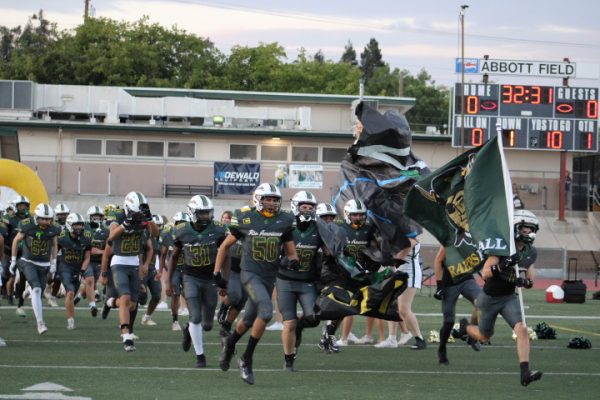Parents tracking kids with phones
In an age where technology is more prevalent than ever, some parents use their phones to make sure their teens are safe and where they say they are.
Tracking teens’ location is a growing trend for parents and brings up controversy on how involved parents should be with their kids’ lives.
A survey including over 360 Rio students found that 38 percent of their parents track them using Life360, Find My Friends, or other tracking applications. This figure is significantly higher than results of a 2016 Pew Research Center parent survey that found 16 percent of parents nationwide said they track their kids through phone apps.
Students interviewed by the Mirada said that some of their parents fear for their safety if they are out alone, while others just want to make sure their kid isn’t at a party without permission.
Sophomore Molly Ford has used Life360 ever since 2015, when she first got her phone. The app is highly accurate in tracking location and can send parents notifications when their kid leaves the house and arrives at a destination.
“I think that although it may be annoying for some teens, it is actually really important for their safety,” said Ford. “Especially for young girls, it is important to for your parents to know that you are safe in a very dangerous world.”
The use of technology to track kids can be beneficial to parents. Life360, for example, provides alerts whenever a family member leaves or arrives at home so parents know if their teen made it home safe or if they left the house without permission.
This also brings some nuisances.
“One thing I hate about it, is that it notifies me whenever a family member arrives or leaves home,” said Ford.
Parents find apps like this one to be very beneficial even though they know their teenagers might not be too fond of it.
“I worry about my daughter Emma’s safety as a young girl being out and alone, now that she has her license, you never know what could happen,” said parent and P.E. teacher Brian Davis. “I also use the app because of some mistrust that occurred, so now I can know exactly where she is regardless of where she tells me she is.”
On the other hand, some parents feel like tracking their teens is an invasion of their privacy, and feel it can make a parent’s authority intimidating. Tracking is not the only way parents use technology to check up on their kids.
About 28 percent of Rio students say their parents have read through their text messages and phone calls at least once since they have been in high school. This compares to 48 percent of parents who said they had ever done this in the Pew survey. (Unlike the Pew survey the Mirada did not include parental actions before high school.)
Some parents might end up obsessing over their teen’s life whether it’s there location, social media activity or messages.
Many adults feel that tracking their teen’s online activity is something any good parent should do to keep their kids accountable. Others believe that parents should trust their teens to make good decisions and only after they break that trust should this strategy come into play.
Regardless of whether parents used phones to check up on their kids, nearly half used phones as a form of punishment. Forty-eight percent of students said that since they have been in high school their parents have taken away their phone privileges.
“If you used your phone to do something you shouldn’t have then taking it away is a perfectly logical punishment,” said Sophomore Lucy Prieto.
Many kids become frustrated when their parents take away their phone. They try to outsmart parents by using iPads or laptops to text people and even giving their Snapchat passcode to friends to keep their streaks.
Prieto explained a common argument that kids use is taking away their phones makes the parent’s life harder.
“I also think that taking phones away as punishment can cause even more of a struggle for parents and such as they cannot easily contact their kid once they take it away,” said Prieto.
It’s nothing new that teens and parents do not agree on how involved adults should be in their kid’s lives, but technology gives teens some of the independence they want, while also giving parents the ability to check in more.






























